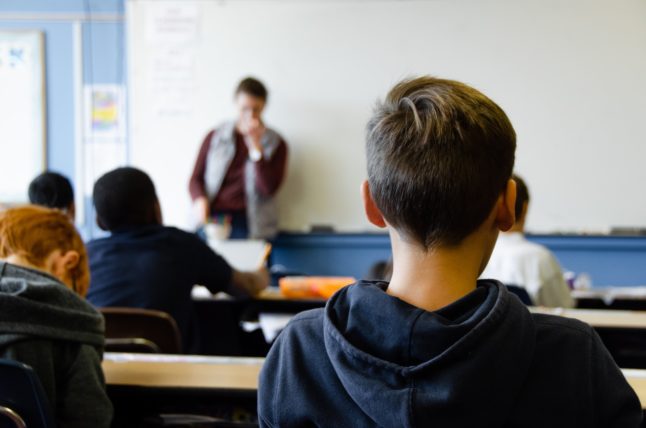Switzerland’s teachers’ association has warned of worsening school education standards because of a lack of certified staff.
Association president Dagmar Rösler told a news conference that an increasing number of primary schools have had to bring in supply staff who are not qualified to be a teacher. “The quality of our education is in danger”, she said.
“The new school year starts with a further worsening of the shortage of qualified staff. This is hardly surprising and the schools are paying for what the politicians have failed to do for too long”, Rösler said.
READ ALSO: Geneva’s private universities charge high fees for unrecognised diplomas, probe reveals
She added there is a need to train new teachers, reduce overtime work, and provide new teachers with financial support. In addition, Switzerland needs to “make the profession more attractive”, according to the educator.
Where is the situation worse?
Rösler said the situation was worse in the German-speaking cantons in Switzerland and that schools were having trouble recruiting teachers to fill vacant positions ahead of the new term.
In Bern, for example, there were still 500 positions vacant in May 2022. The situation, which was already bad, was worsened by the Ukraine refugee crisis. As schools resorted to “emergency solutions”, they ended up hiring insufficiently qualified stern.
Rösler said: “In the canton of Bern, about 1,500 out of 15,000 teachers are insufficiently qualified. Moreover, two-thirds of the professionals working in education settings in the canton of Aargau do not have appropriate qualifications”.
READ ALSO: How different is raising kids in Switzerland compared to the United States?
“Teaching is a demanding and complex task that requires basic training. Where this is lacking; the remaining experienced teachers have to provide support”.
“What is meant to be a relief turns into the opposite”, she said.
Rösler warned that the knock-on effect could see parents opt to place their children in private schools or homeschool.
What needs to be done?
David Rey, president of the teachers’ workers’ union SER, said that the emergency measures taken must become the norm and that recruited persons who are inadequately trained “must not be offered permanent employment”.
He added that “false solutions” such as having more kids in the same class just place an additional burden on the teachers.
READ ALSO: Zurich mandates organic food for hospitals, schools and cafeterias
For the professionals, the cantons need to recruit and hire more qualified people. They also ask governments to support the career start with a reduced workload to avoid “burnout” among young teachers.
“We must ensure that people stay in the profession for the long term with attractive working conditions, salaries that meet requirements, opportunities for further trending and protections against excessive work”, Rey said.



 Please whitelist us to continue reading.
Please whitelist us to continue reading.
Member comments